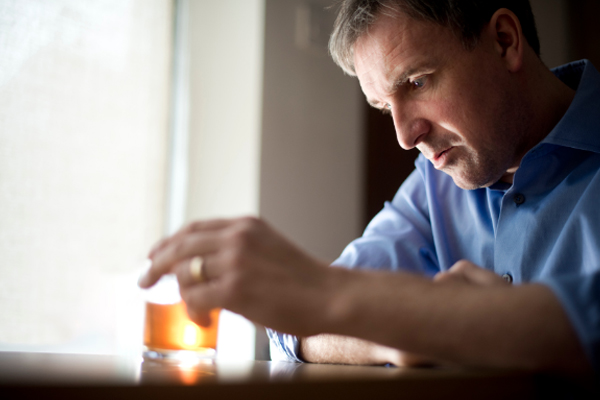Yes, alcohol is a drug. Alcohol depresses the central nervous system and can cause disruptions in mental and motor skills. Alcohol slows down messages that travel between the brain and body. It can also cause damage to internal organs if used in excess. Excessive alcohol use can be harmful physically, emotionally, and financially.
What is Social Drinking?
Social drinking is drinking on a special occasion or occasionally drinking during an evening out with friends. It can be an enjoyable “social” event to celebrate life with close friends or family. However, social drinkers don’t consume alcohol to forget their troubles. Even though it can relieve stress, social drinkers don’t rely on alcohol when they get stressed out. Social drinkers are generally responsible drinkers and don’t let their drinking interfere with important things in their life like their job, family, commitments, or important obligations.
More About Social Drinking
Social drinkers usually know when they’ve had enough and can stop or put the alcohol down before becoming too intoxicated. Social drinkers can get intoxicated, but most use that as a learning experience for future reference. It is possible that too much social drinking may lead to alcohol addiction. It is best to try to avoid drinking too much. No matter how you look at it, drinking is not good for your body and as some people become angry when drunk it can lead to worse things than just a hangover.
Does Safe Drinking Exist?
If you are a social drinker, you can take steps to reduce the risk of becoming a problem drinker. Some of these steps can include:
- Eat before consuming any alcohol to help slow the absorption and its effects.
- Don’t drink any alcohol when you are thirsty. Drink water to quench your thirst before you start drinking.
- Don’t drink if you are emotionally upset, tired, or under a lot of stress.
- Know your limits. Know when to stop drinking and don’t ever drink to get drunk.
- Never mix alcohol with any other medications or drugs.
- Never drink and drive.
Always remember that alcohol is a drug and there is no safe level of use. Drinking alcohol always carries some risk, and it’s important to be careful when consuming any amount of alcohol.
Signs and Symptoms of Problem Drinking
Problem drinking can happen to anyone at any time. Just like with any other substance, there is a strong correlation between people with mental health issues and alcohol. People suffering from anxiety or depression tend to drink more alcohol to self-medicate. Individuals with unhealthy alcohol use or alcohol use disorder (AUD) can’t always predict how much alcohol they will consume when they will stop, or what will happen while they are intoxicated. Problem drinkers also deny they have a problem or that there are negative effects associated with their alcohol consumption. If you think you may have a problem with alcohol there are some signs to look out for. Here are some of the common signs of problem drinking:
- Drinking until drunk
- Frequent uncontrolled drinking episodes
- Driving intoxicated
- Going to work drunk or drinking on the job
- Getting injured or in trouble with the law while drinking
- Doing something while intoxicated you wouldn’t normally do
- Using alcohol to self-medicate
- Having problems at home, school, or work, with family members, or in social situations due to alcohol
- Gulping drinks
- Having more than 2 drinks a day for men or 1 drink a day for women frequently
- Hiding your drinking or lying about your use
Alcoholics or problem drinkers are clearly obsessed with drinking and the role of alcohol in their lives. Alcoholics lose control of drinking and often repeat destructive patterns. They prefer to socialize with other problem drinkers because they tend to not judge their behavior. Problem drinkers also continuously break promises to themselves and others on the amount they will drink.
The Effects of Alcohol on The Human Body
Alcohol does lessen tension, ease social interactions, and reduce inhibitions, but it can also have a serious effect on your health and can damage multiple organs in the body. Alcohol is physically and psychologically addicting. It causes impaired coordination, memory, and judgment. Alcohol damages the brain, heart, liver, pancreas, and nervous system and can cause cancer. The National Institute or Alcohol Abuse and Alcoholism “Alcohol’s Effects on the Body” reports:
According to the National Cancer Institute: “There is a strong scientific consensus that alcohol drinking can cause several types of cancer. In its Report on Carcinogens, the National Toxicology Program of the US Department of Health and Human Services lists consumption of alcoholic beverages as a known human carcinogen. “The evidence indicates that the more alcohol a person drinks–particularly the more alcohol a person drinks regularly over time–the higher his or her risk of developing an alcohol-associated cancer. Even those who have no more than one drink per day and people who binge drink (those who consume 4 or more drinks for women and 5 or more drinks for men in one sitting) have a modestly increased risk of some cancers. Based on data from 2009, an estimated 3.5% of cancer deaths in the United States (about 19,500 deaths were alcohol related.” (NIAAA)
Alcohol can also cause major birth defects, damage a person’s immune system, and lead to car accidents and accidents on the job. Especially if a person has had too much to drink and tries to operate any heavy machinery.
Call For Priority Admission To Evoke Wellness in Coconut Creek
Evoke Wellness in Coconut Creek offers a safe and comfortable environment for medical detoxification of alcohol. Our patients are treated extensively so that minimal discomfort is experienced during the detox process. We provide residential treatment in a structured environment and then provide you with after-care support which is very important when being treated for addiction. Evoke Coconut Creek is here to help you get on the road to long-term recovery.



